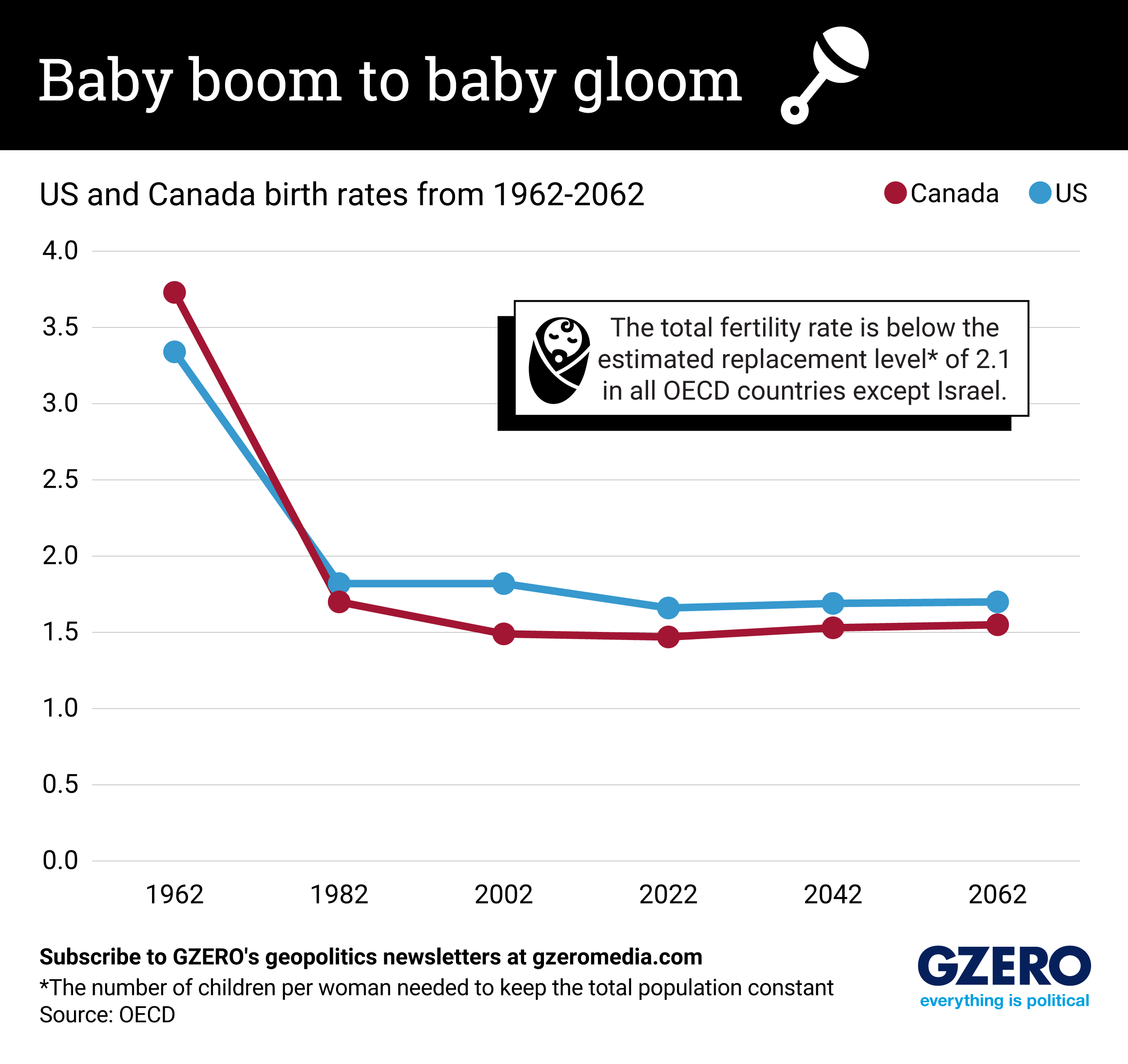Paige Fusco
Women are having fewer children in the US and Canada, where birth rates have been falling since the 1960s. In 2020, Canada’s fertility rate hit an all-time low of 1.4 children per woman. In the US, the national birth rate has fallen by 20% since 2007.
The baby bust is not unique to Canada and the US; the decline is unfolding across the OECD, as women gain increased access to contraception, higher education, and careers, all of which tend to lead to delayed family planning.
High inflation in recent years isn’t helping matters. After all, kids are expensive – from housing to education to health care – which may be enough to deter some couples.
But there is one OECD country where this isn’t the case: Israel. Israeli women have an average of 3.1 children, making Israel the only OECD country where the birth rate is above the replacement level. Experts attribute this to the influence of religion and tradition in the country, as well as social and economic policies that encourage work-family balance.From Your Site Articles
